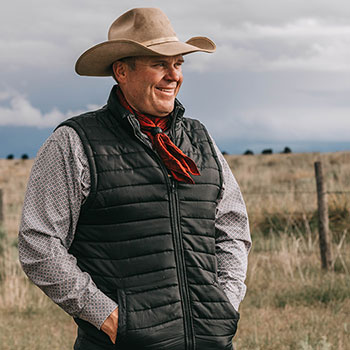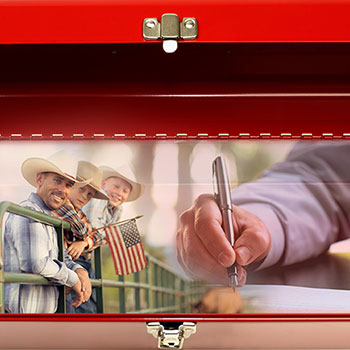
Avoid Family Rifts
Manage the challenges of passing the farm to the next generation.

Agriculture is probably the most common occupation where multiple generations share a life work. The older generation, after spending a lifetime creating something and raising their children on the farm, wants to pass it on to them. The children, after growing up on the farm and some or all of them investing their hopes and future working with Dad and Mom, may want to end up there. The tough part is knowing how to do it.
There is obviously the challenge of handing over the reins gracefully so Mom and Dad still have some security of retirement, and the kids can step in and make a go of it. There are also the heartbreaking challenges of family rifts due to misunderstandings, jealousies and perceived inequities that can lead to bitterness and shattered relationships. Many a farm family has been fractured by inability to make the decisions, or poor or no planning. It’s hard to know how to divide things fairly among siblings, especially if some stayed and invested their lives in the place and some have not, yet still feel they are due an inheritance. Many families have been torn apart by siblings fighting over a place after the parents are gone — with lawyers getting more of the inheritance than the children.
Estate planning is complex, and one of the important facets is the personal side. Families must be astute when it comes to the business end, but also constantly in tune with the personal end of it. It takes work at making it work. It’s doubly hard when sharing a life work and making room for multiple personalities and differences of opinion.
Graham Graff, with Legacy Family Business Advisors, is a fourth-generation farmer in central Alberta. He and Karen Naslund, a family friend, both manage family farms and recently co-founded a consulting business.
“I farm with my parents and older brother. He and I are taking over the farm from our parents over the next few years,” says Graff. “We both went to business school, but wanted to come back to the farm and work together. I started the Legacy Family Business Advisors with Karen because she and I were both interested in mediation and family business issues.”
Legacy Family Business Advisors focus primarily on transition planning, but also on conflict resolution for family businesses.
“What got us interested in this was that we both saw farms that broke up due to conflicts. Family members were no longer speaking to each other and unable to resolve their differences. Then the farm gets split up, or someone is no longer farming with their parents or siblings,” he says.
Transition planning — passing the farm or ranch to the next generation — is often a long and difficult process, and every situation is different. No two farms are the same in type of operation, number of farming children and non-farming children, etc. The children who invested their lives and labors in the farm often feel they are entitled to more of the inheritance because they have more sweat equity than the siblings who left the farm to do something else.
“How much that sweat equity is worth can vary from family to family. There’s a saying that fair is not always equal. Sweat equity should be rewarded or compensated, but how do you come up with that value? In our own farm situation, I have two younger siblings who are still in school but are not going to be part of the management of the farm. There is a big piece in our transition plan regarding this situation in our discussions,” says Graff.
Often it takes a mediator to help people get on the same page, and this can be a good step. Not communicating can result in breaking up the relationship or suing someone, which results in a harmful and costly situation and is emotionally damaging.
“Don’t delay planning. It’s never too early to start a transition plan. It can be tweaked along the way or added to, but you need to start. As my brother and I take over the farm operation here, we are already setting up things for when we might be passing it on to the next generation after us. Often people leave this discussion until too late; it’s important to start these conversations before there’s a traumatic event such as a death or someone gets sick or injured,” he says.
These things are much harder to deal with when you’re in crisis mode, he adds. If you can plan for all of this beforehand, it can save the family from huge conflicts and turmoil, or prevent a lawsuit.
Sometimes it’s beneficial to hire outside help to assist in creating an acceptable transition plan. Trusted advisors such as your family accountant or lawyer can help, but they don’t always have time to help with conflicts or start the transition plan. That’s where hiring a facilitator can be beneficial — a neutral third party who can assist.
Editor’s note: Heather Smith Thomas is a cattlewoman and freelance writer from Salmon, Idaho.




